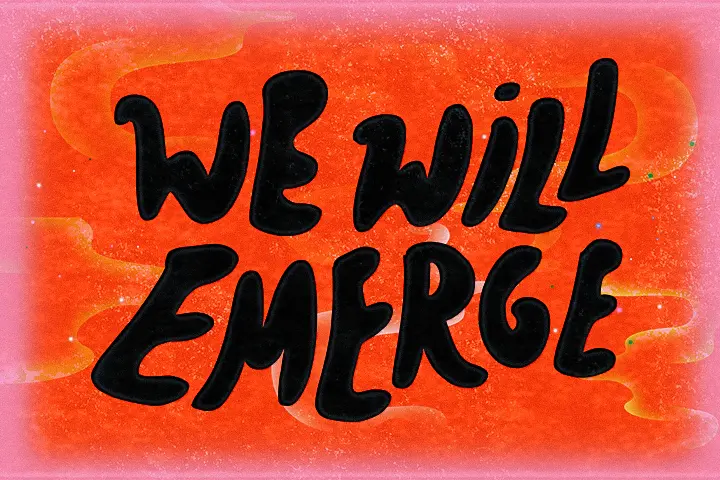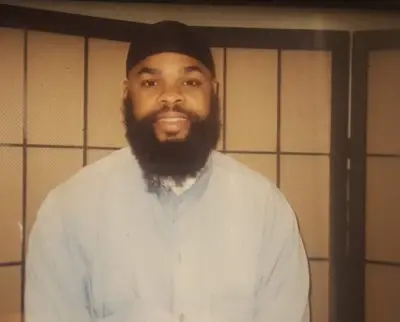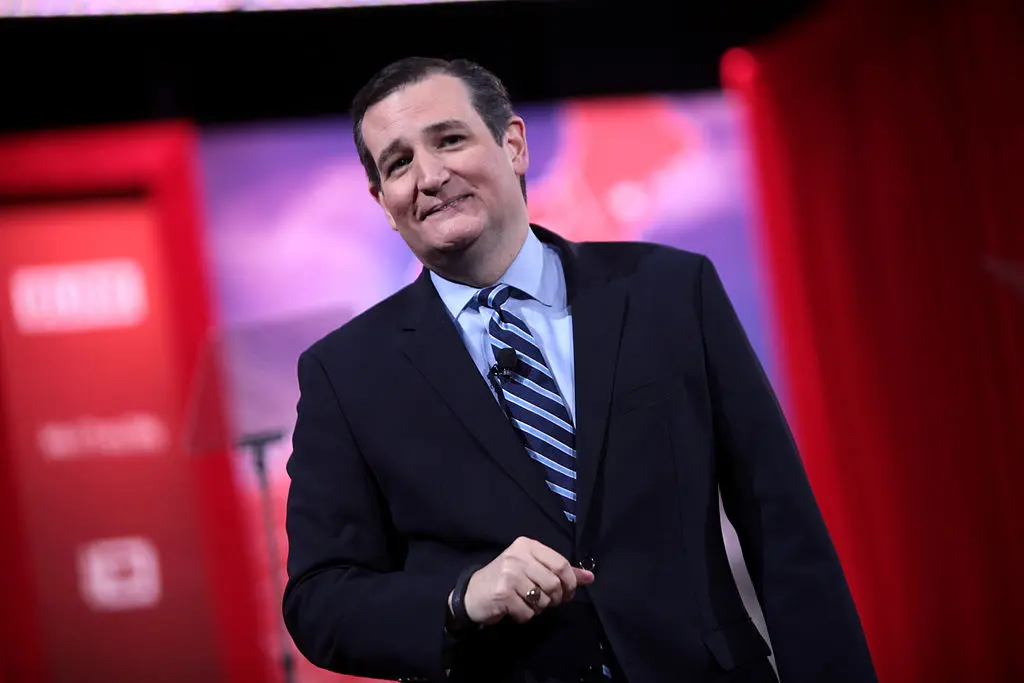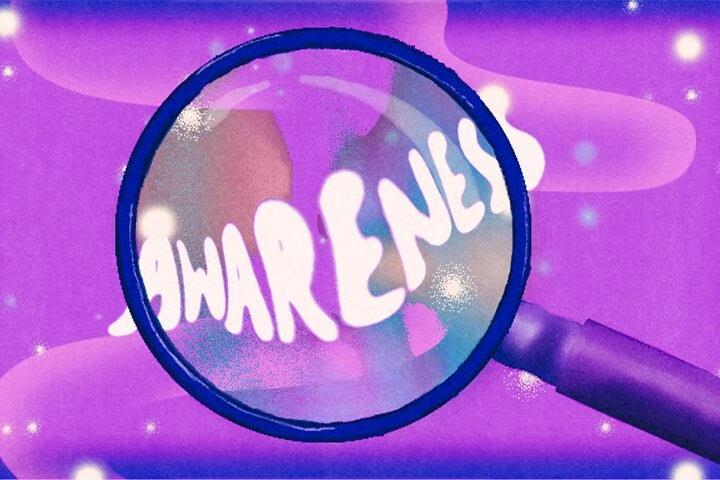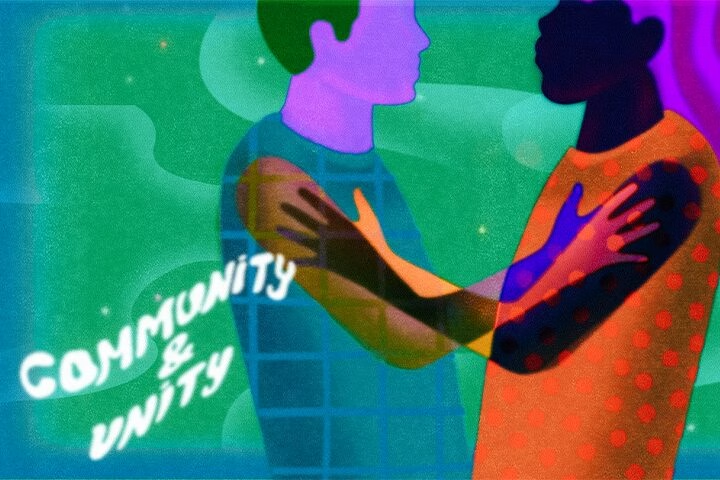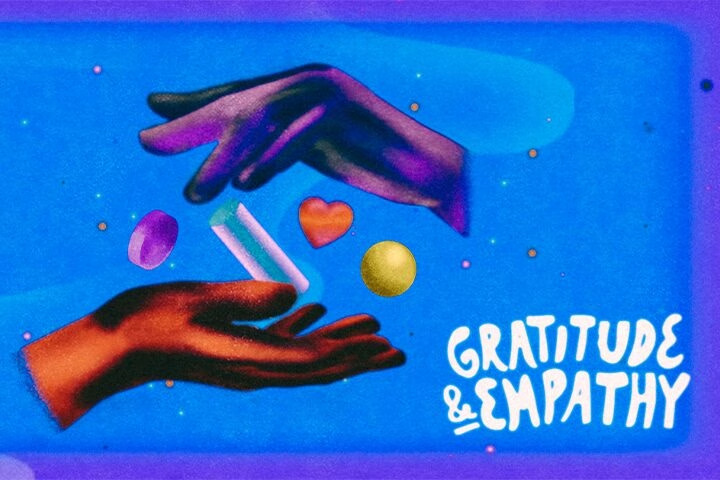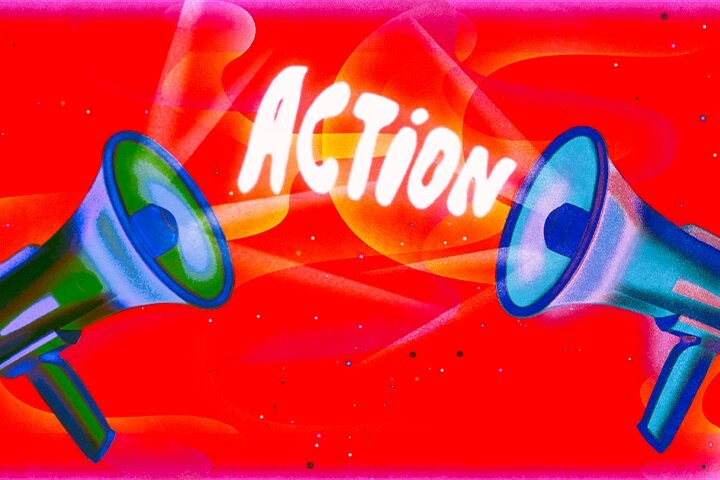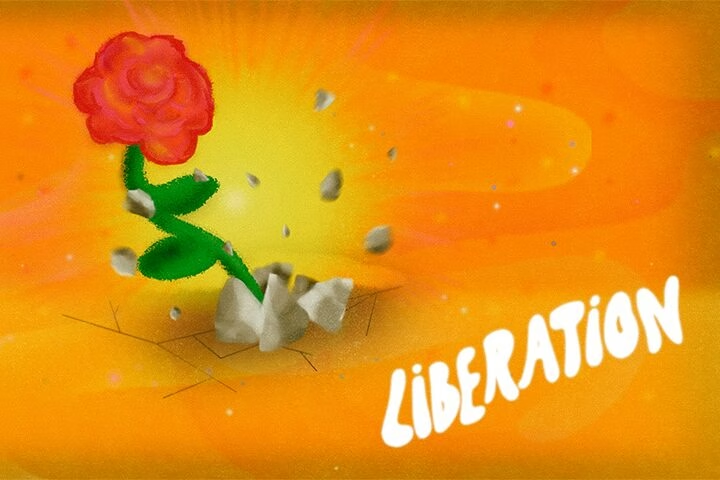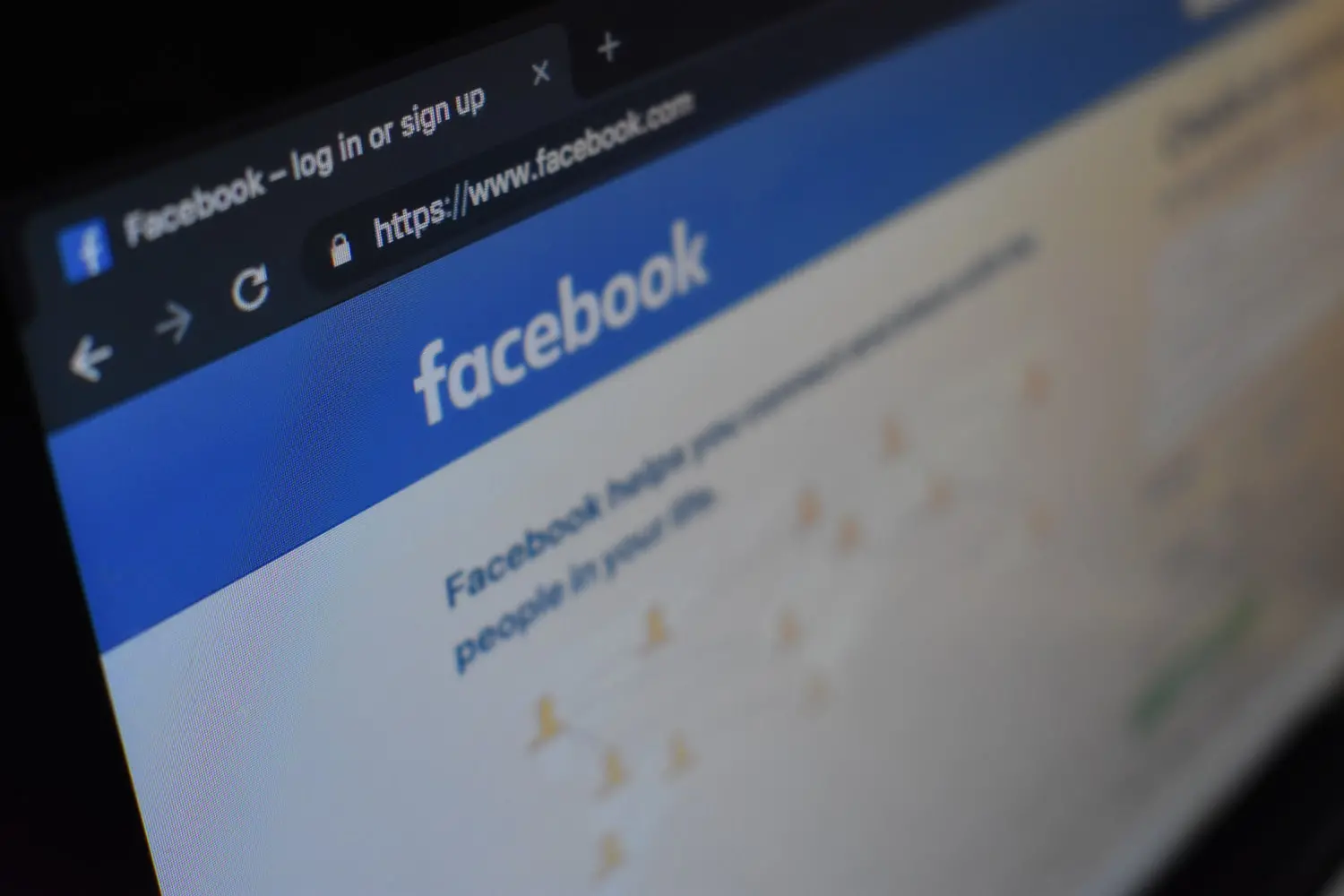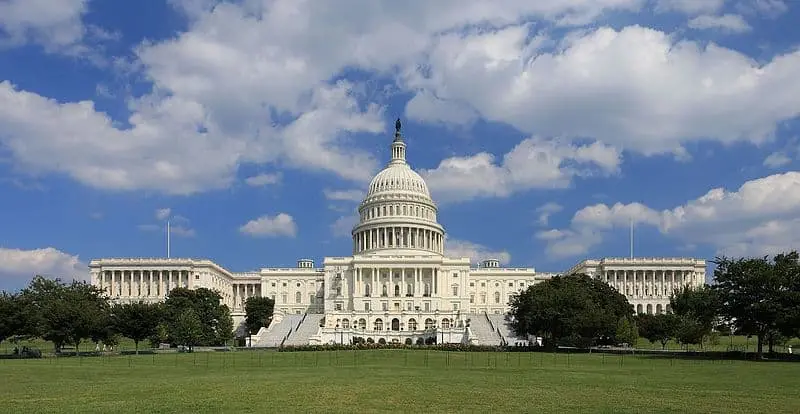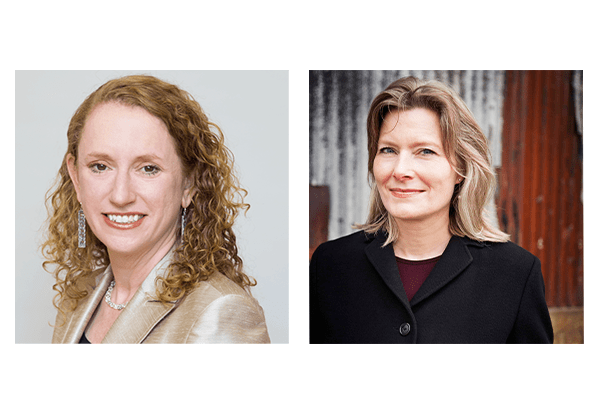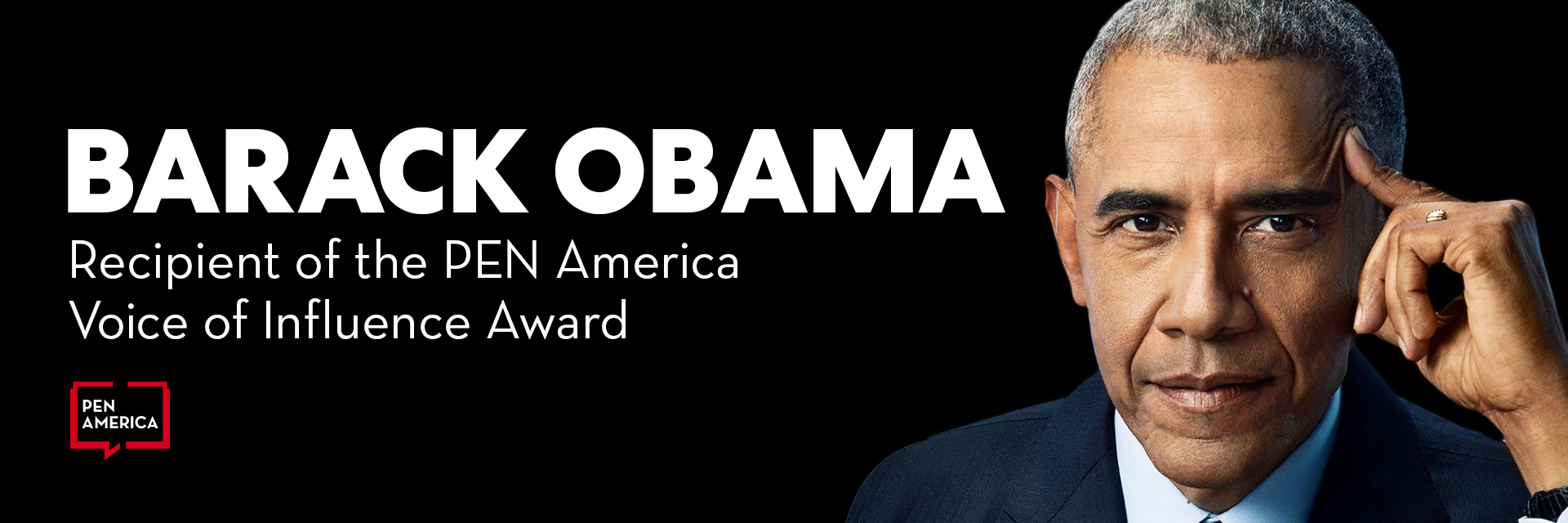
Barack Obama and the Freedom to Write
“When we say that we want to make a more perfect union, it’s not to say that America will ever be perfect. It is that we can make it more perfect.”
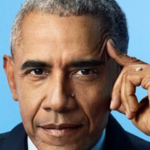
—Barack Obama, 2020 PEN America Voice of Influence Honoree
As part of PEN America’s 2020 virtual gala, President Barack Obama received the PEN America Voice of Influence Award for “the power of his soaring words, the promises he has unlocked in our nation, and the enduring American values that he has embodied.” As part of the ceremony, he sat down for an interview with former PEN America president and Pulitzer Prize-winning author and historian Ron Chernow. The following is a lightly edited transcript of their conversation.
RON CHERNOW: I’m Ron Chernow, a very proud past president of PEN America, and I’m honored to present the 2020 PEN America Voice of Influence Award to none other than President Barack Obama. It doesn’t get any better than this, folks, does it? Like PEN America, Barack Obama has always stood at the intersection of literature and human rights. Twenty-six years ago, his memoir Dreams from My Father revealed an acute self-awareness, a deep humility, and a distinctive ability to transcend the historic divides of American society. Both book and author leapt from the written page to the public stage. President Obama’s next book, The Audacity of Hope, rekindled the sense of possibility in a sometimes weary and frustrated nation. He understood that nothing about the freedom to write is ever guaranteed. And he rose to defend writers, journalists, and activists around the world who had paid the steepest price for exercising their right to free expression.
Now, President Obama has brought his majestic prose, his panoramic vision, and piercing insights to the first volume of his new presidential memoir, called A Promised Land. PEN America honors President Obama for the power of his soaring words, the promise he has unlocked in our nation, and the enduring American values that he has embodied. It is my very special privilege to bestow this award and invite President Obama to join me in conversation about the very heart of PEN America’s historic mission: the freedom to write. Welcome, Mr. President, congratulations on this mighty honor—one of many that you have received—and we’re all so grateful that you have decided to join the PEN America Virtual Gala.
BARACK OBAMA: Well, thank you so much for having me. And to PEN, to my fellow honorees, and to you, Ron, I want to just express my gratitude. I think it’s been noted that I’m a wannabe writer who ended up somehow falling into politics. So, to be recognized in this way by an organization that not only represents extraordinary literary talents, but also has fought the good fight for the freedom of expression—not just here, but around the world—that is a great honor, and I’m humbled and grateful for it.
“More than a wannabe writer”
CHERNOW: Thank you. I think we can safely say you’re a little bit more than a wannabe writer. I confess, Mr. President, that I opened A Promised Land with excitement, but also some trepidation. Dreams from My Father was such a beautifully crafted and lyrical book that I found myself wondering whether—after eight years in the White House, where you had to weigh every word and parse every sentence—whether you’d be able to go back to writing with the freedom that you had enjoyed before. That is to put it bluntly, I wondered whether, when you sat down to write it, you felt, well, maybe I’ve lost it as a writer after eight years in Washington. Was that a concern?
OBAMA: It certainly was, periodically throughout the writing process. Ron, maybe you don’t go through the angst that some of us do when staring at a blank page, but I assure you that that happened pretty frequently with me. But the one thing that I didn’t stop doing while president was reading and appreciating good stories, and I think that continually informed how I saw the world. Great writers, both fiction and nonfiction, helped shape my sensibility and the decisions that I made, and that probably preserved somewhere in the recesses of my mind the possibility that when I started writing again, something other than speeches, that even though it was a little rusty, I could get back into that kind of frame of mind.
“[T]he one thing that I didn’t stop doing while president was reading and appreciating good stories, and I think that continually informed how I saw the world. Great writers, both fiction and nonfiction, helped shape my sensibility and the decisions that I made, and that probably preserved somewhere in the recesses of my mind the possibility that when I started writing again, something other than speeches, that even though it was a little rusty, I could get back into that kind of frame of mind.”
CHERNOW: I was absolutely amazed during your presidency that you were a very conscientious president. You were always reading your briefing books and your intelligence reports. I was very impressed that you were able to carve out the time to read so much fiction and nonfiction. Mr. President, I feel that so much of your career has revolved around words, whether spoken words or written words, and I have a distinct sense that being a writer forms an essential part of your identity. You have a wonderful passage in the book—you’re talking about when you were studying at Columbia the three years in New York—and you write: “I lived like a monk, reading, writing, filling up journals, rarely bothering with college parties or even eating hot meals.” I’m sure that every writer out there can identify with that sentence, with the possible exception of rarely bothering with college parties. Has being a writer been an important part of your identity, and exactly when and how did that start?
OBAMA: As I describe in the book, I trace back actually my interest in politics to my interest in books. I describe how growing up in Hawaii, a child of mixed race, father’s not there, my mother was frequently absent because of her travels, and I’m trying to figure out where do I fit, what’s my place in the world. What I found was that somewhere in high school that I could maybe construct some sense of meaning for myself, some sense of purpose for myself, or at least start understanding who I was through the conversation I was having with books and authors. That ends up not only prompting a lifelong love of literature and writing, but I think it also leads me to a set of values.
I called my mom the last of the great humanists. She was somebody who wasn’t particularly religious, but deeply believed in the arts and the humanities as a way of expressing what’s best in us. I probably took some of that, applied it to my own life, and that led me to want to figure out how I could express that, not just in a private way as a writer—which tends to be more solitary—but also in a public way, in trying to make those values live. In that sense, my politics, my public life, and my more interior writing life have never been that far apart.
CHERNOW: PEN America being a writers’ organization, I’m going to drag you into a little bit of shop talk here. Can you give us a picture of yourself writing this memoir? Did you, on the one hand, sit down and primarily write this out of your memories? Or were you sitting there with stacks of interoffice memos and recollections from staffers? And did it feel liberating not to be surrounded any longer by a team of White House speech writers?
OBAMA: This was more of me just trying to tell a story. I’m sitting at a desk with my yellow pads—I’m very particular about the pens I like, because I write a first draft out in longhand—and what I was trying to do more than anything else was just tell a story. At the end of each chapter or each episode, I would then do my own fact-checking, initially. I was trying to describe to my daughters, Malia and Sasha, what it was like pre-Google, pre-Wikipedia, pre-internet, because I’m not sure I would have been able to do the book in exactly the same way without the fact that you can just pull up—you can type in a date and basically see everything that, at least, was on my public schedule for that day. It’s a little scary to realize that pretty much those entire eight years of my presidency were documented hour by hour. But it was liberating as a writer, because I didn’t have to go out there and dig through all kinds of paper and manuscripts. It made it very efficient.
Then once that was done, I sent it off to the fact-checkers and the researchers to make sure that I had gotten the story more or less right. But really, I ended up writing this more as a story, and I think the battle for me was wanting to maintain the interest of a lay reader—to get a sense of what it is like for somebody who they can maybe can identify with as a young man or a father or a husband, who then takes this extraordinary journey through the strange experience of being president—while at the same time chronicling historical events in a way that, for professionals like you, in the future they can look it up and say, all right, this is at least how he thought about it, this is how this or that happened, and trying to balance telling a story while still providing a fair historical accounting I think was a big wrestling match I had throughout the book.
“The right will not always win out”
CHERNOW: I think you did it quite brilliantly. If anyone ever wanted to know what it feels like to step out on the stage of your presidential inauguration, or what it felt like spending the first night in the White House, the book answers all of those questions. PEN America for about a century now, PEN and its affiliates abroad, we’ve fought the good fight on behalf of persecuted and imprisoned writers both here and abroad. I was wondering, Mr. President, for all those PEN staffers and PEN Members who have labored down in the trenches on these long, drawn-out campaigns to get the release of this repressed dissident writers or that, it would be wonderful to know whether these sorts of human rights campaigns, do they actually percolate up to the level of the State Department or the White House? What is the importance of a group like PEN America, or the entire constellation really of nonprofit human rights organizations, to people who are holding public office in Washington?
OBAMA: I think it makes all the difference. I’m glad you framed the question that way, because I want the staffers and the people who are carrying the laboring or day-to-day on these issues to know it does impact foreign policy, and it does impact presidential decision-making. I was consistently raising issues of jailed journalists, jailed dissidents, censorship issues, freedom of the press issues in conversations that I would have—whether it was with Vladimir Putin or President Hu and President Xi, or any number of other world leaders. I want to make sure that I don’t overstate the efficacy of some of those interventions. One of the things I try to describe in the book is the degree to which the United States is and has been a genuine superpower—the most powerful nation on Earth—during the course of your and my lifetime.
But each country is still motivated by its own interests. For those in power, those interests largely revolve around staying in power. If you are bringing up in a bilateral meeting the fate of a dissident or journalist, and the foreign government determines that, you know what, that person is too dangerous—they are sometimes willing to ignore us, knowing that there’s also going to be other business between our two countries. But just the fact that we bring it up makes them conscious of it. There were a number of occasions where, as a consequence of us being aware of the plight of a journalist or a dissident, a human rights activist, that making it onto the agenda of a conversation that I had, that it ended up resulting in somebody’s freedom. More than that, I think, beyond the individual case, what it does is it sets a standard of conscience that percolates throughout the international community.
“There were a number of occasions where, as a consequence of us being aware of the plight of a journalist or a dissident, a human rights activist, that making it onto the agenda of a conversation that I had, that it ended up resulting in somebody’s freedom. More than that, I think, beyond the individual case, what it does is it sets a standard of conscience that percolates throughout the international community.”
Part of what I try to describe—it’s why I call the book A Promised Land—I think this applies both within the United States and around the world; at times, because we don’t always realize our ideals, there’s a tendency for some to think that the ideals themselves don’t matter. My argument is that just knowing there is an ideal out there, knowing there’s a conscience out there, knowing somebody is watching, that the right will not always win out, but it becomes a target for us to shoot towards, and it I think changes the conversation over time, such that we’re better off than we would have been if we just cynically said, this isn’t gonna make any difference at all. When we say that we want to make a more perfect union, it’s not to say that America will ever be perfect. It is that we can make it more perfect. And the same applies to issues of human rights around the world. We’re not going to get to a point where we can eliminate all censorship, all cruelty, all abusive power, but we can lessen those trends and those tendencies over time, and that’s the difference that an organization like PEN can make.
“We are now in an ongoing contest of ideas”
CHERNOW: That’s wonderful to hear. I noticed that in this book, in all of your books, heroes of human rights stride across the page. You describe how, in preparing for your presidential race in 2008, you went to South Africa, you stood in the tiny cell where Nelson Mandela had been for 27 years, and then you met with Archbishop Desmond Tutu. We at PEN America, we love the sense of a worldwide community of human rights activists, because that’s really the very essence of the organization. I wonder, that community of worldwide activists, do you think it’s as strong today as it was, say, in the days of Mahatma Gandhi or Martin Luther King Jr. or Nelson Mandela? Or has the rise of all of these authoritarian, illiberal, nationalistic regimes around the world really eroded the power of that community?
OBAMA: I think that history moves in cycles, and we are now in an ongoing contest of ideas. There is a vision of what the world could be that, I think, PEN embraces, that many of the writers who are part of your organization describe—one that recognizes human dignity and freedom and equality and fairness, and that at times we’ve been able to approximate in liberal democracies. Right after the Cold War, with Russia and the old Eastern Bloc nations back on their heels, China just emerging into reentering the world post-cultural revolution, I think it felt as if that spirit was ascendant. Mandela’s released from prison, and suddenly you see Europe unified, and there’s glimmers of hope that China’s going to politically liberalize, as well as economically liberalize. Then, you get a backlash—not just in those countries, but here in the United States. And that contest between a vision of humanity that recognizes the dignity of all individuals and believes that we can work collectively to make the world more kind, more just, more free, voices are heard, and we are good stewards for the planet, that wrestles with a much more ancient attitude towards human relations that’s based on power and domination, in which strong men emerge—and we’re in the middle of that contest.
Here’s the good news, though, Ron. I do think that, as I travel around the world—or at least pre-COVID, when I was traveling around the world—the spirit that I believe in I saw alive and well among young people everywhere. It didn’t matter whether it was in Prague or Tel Aviv or Buenos Aires or Ho Chi Minh City, you saw more and more young people embracing the kinds of values that, I think, PEN has stood for. The challenge we have is that our institutions have not adapted as quickly to those longings, which is why the younger generation often doesn’t have the same mechanisms to express their idealism. Oftentimes, they’re disappointed with existing political structures, existing media structures—those are going to have to be remade.
“[Y]ou saw more and more young people embracing the kinds of values that, I think, PEN has stood for. The challenge we have is that our institutions have not adapted as quickly to those longings, which is why the younger generation often doesn’t have the same mechanisms to express their idealism. Oftentimes, they’re disappointed with existing political structures, existing media structures—those are going to have to be remade.”
It’ll take some of us old folks getting out of the way so that they can remake them. But there are, I would say, probably more young people who embody the same spirit that a Havel or a Mandela do today than there were in the past. They just haven’t yet risen to the point where they have the voice and the authority and the power to help realize those values.
The presidency and the press
CHERNOW: Thank you, those are very encouraging words for those of us at PEN America. Let’s talk a little bit about the always fraught subject of the presidency and the press. We have gone through four years of the most unbelievably hostile and confrontational attitude toward the press, clearly epitomized by President Trump but, as you point out in the book, not limited to it. This was a spirit that permeated his administration, many Republicans on Capitol Hill, and as you point out, it started long before Trump—going back to Sarah Palin, Newt Gingrich, and others. How deep do you think the damage has been, and can we repair this breach and get back to somewhat more civilized relations between president and press, which are always difficult?
OBAMA: Look, as you point out, by definition the press should be a little bit of a thorn in the side of power, and in the United States that means poking and prodding the president. And presidents don’t like being poked and prodded all the time, and I record in my book all the times that I think the press was unfair to me. But what I never lost sight of, and what I think has been our tradition, is the recognition that the Fourth Estate is vital to a functioning democracy. The notion that you would threaten them, or call them an enemy of the state, or try to delegitimize the press that does the job of fact-checking and expecting evidence when you float accusations—that kind of bullying behavior we haven’t seen to the extent that we’ve seen it recently. The good news is I think that you’re going to have a new administration that will level-set back to the norm, which doesn’t mean that the press is always going to be happy. The press used to complain about my administration in various ways. There were issues in which the Justice Department—not at my direction, but it was on my watch—initiated prosecutions of leakers, and there were questions as to whether this was oppressive towards the press. There were complaints and grumblings about the frequency of my press conferences in formal ways. So there’s still going to be some dissatisfaction, but I think that, yes, we can return to some of these norms.
The bigger challenge, I think, Ron, is going to be what is happening inside the press itself. The splintering of the press, the proliferation of outlets that can reach millions of people, the dissolution of journalistic standards that we had all come to expect in mainstream journalism—a lot of that has crumbled. So what you now have is a variety of very powerful news outlets that have no problem not just repeating falsehoods or misinformation, but disseminate them themselves, and the lines have blurred now between propaganda and what we would consider journalism in a way that has been described as truth decay. You’ve got an epistemological problem where people don’t know now entirely what’s true and what’s not, and the old authorities and curators of what is factual are greatly weakened. That’s dangerous for our democracy, and I don’t think that that’s going to be solved just by a new president. I think, internally, news organizations and all of us, culturally, are going to have to think what to do about that.
“[W]hat you now have is a variety of very powerful news outlets that have no problem not just repeating falsehoods or misinformation, but disseminate them themselves, and the lines have blurred now between propaganda and what we would consider journalism in a way that has been described as truth decay.”
How do we preserve freedom of the press when you’ve got an internet in which somebody who denies climate change or promotes wild conspiracy theories can put up a website that is getting as many viewers as The New York Times or the Wall Street Journal? If that’s the case—and people can choose whatever news or facts fit their opinions, rather than having their opinions fit the facts—can we still have a functioning marketplace of ideas? This is going to be a problem not just here but around the world, and it’s something that repressive regimes have understood for quite some time. We may have been overly optimistic—I’m guilty of this—in thinking that the internet was going to be a tool of freedom, and it turns out that it can just as easily be turned into a tool for division and some of humanity’s worst impulses gathering speed and force. If you ask me one of the things I’m most worried about, long-term for democratic values, this is the one.
“The circus of birtherism” and conspiracy theories
CHERNOW: Certainly conspiracy theories have only proliferated in the realm of social media. But of course, we did have conspiracy theories going back even to President George Washington, who was accused in the press of plotting to restore the British monarchy. He was accused, at one point, of having been a British secret double agent. With the Revolutionary War, obviously the Brits got a very bad return on their investment. And you know, Mr. President, Washington at first decided that he was not going to dignify this nonsense with a response, but then he realized that a lie that’s repeated often enough will be believed. In his second term, he wrote a fascinating letter in which he likened it to water dripping on the stone—he said, if water drips on the stone long enough, it will leave a mark. You had to deal with conspiracy theories, notably with Donald Trump and birtherism, where you waited quite a while—I’m sure it was difficult—and then finally responded to it. What was the turning point that you finally decided to respond to that? And what was your policy, generally, in terms of responding to this kind of vicious nonsense that was circulating out there?
OBAMA: As you point out, I end this volume of my story with the parallel events that take place—I’m working with my team to decide whether we’re going to launch a mission against Osama bin Laden, and it’s happening at the same time as the circus of birtherism. That contrast, I think, in some ways was indicative of the twin trends in our politics and our government. On the one hand, you have these extraordinarily skilled professionals devoted to protecting America and risking their lives, making enormous sacrifices, and on the other hand, you have what I called at the time a carnival barker, engaging in this kind of spectacle that should have been easily disproved. But this brings me back to the point about the vital role of journalism. One of the concerns I had, after a while, was the degree to which Donald Trump’s arguments that I wasn’t born in this country were not just getting attention and coverage from marginal news sites or even Fox News, but were rather being prominently discussed and reported on in mainstream news by journalists who probably knew better but whose producers were saying, look, Donald Trump attracts viewers, and this kind of crazy stuff is good for ratings. I think it is at that point where I realized I can’t ignore this, because it’s actually distracting us from doing the necessary work of the presidency. It raises the broader question of how can we maintain our freedoms? How do we avoid a situation in which the government or some authority is determining what’s news and what’s not? But that we are internalizing and institutionalizing values that maintain fidelity to truth. That’s going to, ultimately, be the responsibility of each of us as consumers of news, as producers of news, as citizens. It’s a reminder that democracy is hard.
“One of the concerns I had, after a while, was the degree to which Donald Trump’s arguments that I wasn’t born in this country were not just getting attention and coverage from marginal news sites or even Fox News, but were rather being prominently discussed and reported on in mainstream news by journalists who probably knew better but whose producers were saying, look, Donald Trump attracts viewers, and this kind of crazy stuff is good for ratings.”
As you point out, I try not to romanticize the past. Partly by virtue of being a Black man in America, I’m not somebody who is nostalgic, in general, about how wonderful everything was way back when. But the question for me is always, how do we replicate a common culture, common values, honesty, truth-telling, responsibility. How do we do that in a more diverse, more inclusive America? Because part of what, I think, drives this splintering of news and opinion and facts, and the deep divisions that we’re seeing in our society is the fact that it was easier to maintain things like bipartisanship in government, or an agreed-upon set of rules around news, when it was just a certain group of Americans who were the decision makers, and were considered part of the conversation, and were the arbiters of what was important and what isn’t. When you started seeing African Americans and Latinos and LGBTQ people and women insisting, no, our voices matter, too and contesting for power—it’s at that point where suddenly information itself and the stories we tell become much more contested and more controversial. In some ways, I think, for PEN as an organization, it should be heartening to realize that it turns out the pen is mightier than the sword. The stories we tell are powerful. One of my goals as president, and even post-president, has always been to see, can we tell a unifying American story, but one that includes everybody? Because the past unifying story so often left out a lot of people’s stories. I think it is possible, but we’re going through the growing pains of trying to reunify, but in a way that is more reflective of the diversity of this nation.
The search for common decency
CHERNOW: It seems to me that your political career, the essence of it, has been the search for some common core of meaning and decency. You’ve had a unique ability as a political figure to cross racial and ethnic and socio-economic divides. For me, the most revelatory moment in your memoir maybe comes towards the beginning: You’re a state senator in Illinois, you describe that you like to travel around the state, and the first time you went to downstate Illinois—which is a very conservative place, you said that your chief aide, I think his name was Dan Shomon, wondered how a Black lawyer from Chicago with an Arab-sounding name would fare in southern Illinois. If I can just read a passage—you write, “Despite Dan’s worries that I’d be out of place, what struck me most during our travels was how familiar everything felt, whether we were at a county fair or a union hall or on the porch of someone’s farm in the way people described their families or their jobs—in them, I heard echoes of my grandparents, my mother, Michelle’s mom and dad. Same values, same hopes and dreams.” I’m wondering, Mr. President, how much of this unusual versatility—if I could put it that way—that you’ve had as a politician, being able to speak to different groups, how much of that do you think stemmed from your unique, biracial identity, and the fact that you were a product of two very dissimilar families?
OBAMA: There’s no doubt that that is both a strength of mine as a politician was the ability to translate between worlds by necessity, because I was born into multiple worlds. And there’s also no doubt that that was part of the spark that led me to get into politics. As I describe in the book, it took me a while, and in some ways my first book was about how to integrate myself, how do I pull all these strands together to make a whole. I guess this is the sequel where, having emerged relatively whole and having a sense of who I am and how I connect with everybody else, I now want to share the good news with the country as a whole. The interesting thing about the passage that you just read, because it ties into our earlier conversation, you know I ended up getting enormous support in these pretty conservative, rural, largely white communities when I was a senator, and that success was repeated when I ran for president in the first race in Iowa.
But I also note that, by my second year in office, I’m not sure if I could make that same connection, because now those same people are filtering me through Fox News and Rush Limbaugh and an entire right-wing or conservative media infrastructure that was characterizing me in a way that suggested I looked down on those folks or had nothing in common with them. Part of what changed is that back then, if I went into a small town in southern Illinois, I could probably visit the local editor of the newspaper—who might be a conservative guy with a bow tie and a crew cut, probably doesn’t have much use for Democrats, generally—but was somebody who adhered to journalistic norms, was curious, was interested, believed in facts. I could sit down with that guy, and he might write an editorial saying, he’s a young liberal kid from Chicago, but seems sensible, had some good ideas. And so, that’s how people were receiving me—with a different set of assumptions than they would today. It’s yet one more example of how the connections that I may see, because I experienced them in my own life, may get harder to make if we’re only understanding people through our phones and our screens and we’re not having the face-to-face conversations where, by virtue of that conversation and experience, we can recognize ourselves in each other.
America’s racial dilemma
CHERNOW: I know you’ve spoken, Mr. President, that you have been very inspired by the millions of Americans, both Black and white, who repeatedly poured into the streets during the past year in support of the Black Lives Matter movement. For me, one of the most absorbing and revealing passages in your book describes how you decided to frame the issue of race in your 2008 campaign. If I can quote again you wrote, “I needed to embrace white people as allies, rather than impediments to change, and to couch the African American struggle in terms of a broader struggle for a fair, just, and generous society.” That approach has had many fans. It’s also had some critics. Do you think that it still represents the best approach for the Democratic party’s take in dealing with the historic injustices against the Black community?
OBAMA: I think that there’s a difference between politics and getting votes and truth-telling and the prophetic voice. This is where, sometimes, my role as politician versus my role as writer can diverge. I was in a conversation earlier this week with a couple of friends of mine, both writers—Michele Norris, who’s also a journalist; Elizabeth Alexander, a poet. They asked what’s a book that in my mind captures as well as anything America’s racial dilemma, and I mentioned James Baldwin’s The Fire Next Time, which when you reread it today is as relevant as it was when it was written over 50 years ago, a searing account of the tragedy, the original sin of race and how it plays out in the life of a young James Baldwin and the life of Harlem. Now, if I spoke the language of James Baldwin as he speaks it on the campaign stump, I’m probably not going to get a lot of votes in Iowa—even though it is as true and as revealing and as important a document in understanding the realities of race relations in America as anything that’s been written. But James Baldwin didn‘t have to go out and get votes. Right?
So I think the question is, how can we create an interplay between writers and activists, preachers, civil society, whose job it is not to shade the truth in order to make people feel better but simply to bear witness and hopefully change culture, and those of us who—at least at the time I was in the business of putting together coalitions that can actually get laws passed, first of all get myself elected and then getting the laws passed. I think we are still in a position, and will at some level always be in a position where in a multi-racial society, in a multi-ethnic, multi-religious society, we have to speak a language that a broad, cross-section of the population can hear. When it comes to, for example, alleviating poverty, what we’ve discovered—not just recently with Donald Trump, but dating back to the beginnings of this nation and on through Nixon’s southern strategy—is it’s very easy for politicians who want to maintain the status quo to fan the resentments or fears of the “other” in the white population, and suggest that it’s immigrants or it’s Blacks or it’s somebody who is stirring up trouble and trying to take your stuff. In that context, using a universal language, I think, tends to be more powerful. It is what allows, then, people to say, okay, you want to help all poor kids. Now, the fact that, disproportionately, those are Black kids, that’s important to note, and that is relevant.
“I think we are still in a position, and will at some level always be in a position where in a multi-racial society, in a multi-ethnic, multi-religious society, we have to speak a language that a broad, cross-section of the population can hear.”
What I think has changed—and we saw it this summer—is, because of people’s witness of George Floyd and that murder, because of what seems like a constant stream of irrefutable evidence of excessive force against unarmed Black folks, that I think white America has awakened to certain realities that even 20 years ago were still resistant to. That creates a new opening for a different kind of political conversation, and I think that’s part of why I’m hopeful, particularly about the younger generation. If I talk to white friends of my daughter, they have internalized the degree to which there are structures of racism that are still embedded in our institutions and the criminal justice system in a way that their parents might not have been as comfortable talking about. I think that part of that is because of writers over decades, who’ve been able to tell those stories, and those stories get taught, they get passed on, and they get not just turned into books but they get turned into movies and TV shows and music so that the culture as a whole is changing.
“What I think has changed—and we saw it this summer—is, because of people’s witness of George Floyd and that murder, because of what seems like a constant stream of irrefutable evidence of excessive force against unarmed Black folks, that I think white America has awakened to certain realities that even 20 years ago were still resistant to. That creates a new opening for a different kind of political conversation, and I think that’s part of why I’m hopeful, particularly about the younger generation.”
The one thing I became very persuaded about as president—and Michelle probably understood this sooner than I did, because she’s smarter than me—is the degree to which policy matters, but culture is what gives you the opportunity then to move forward on policy and to build the coalitions and get the levers that allow you to institutionalize changes. That’s true whether we’re talking about racial issues or equality for people around issues of sexual orientation or gender or what have you. We’re constantly doing this work of churning the culture, and hopefully, steering it in a better direction. What good politics does is it sees those opportunities, and can translate that into votes and legislation. But very rarely do you see the ability to get votes and legislation if the culture is entirely resistant to it.
We can’t take our democracy for granted
CHERNOW: I find, Mr. President, as a chronicler of American history, I’ve had this speech that I’ve given people over the years that while the American public—from time to time—can lose their ways, I felt that in the long run a certain basic goodness and decency always emerges. But I have to say that this little speech, during the last four years, has sounded very naive and foolish. We now see there’s a lot of darkness out there. I think we’ve learned a lot of things about our fellow citizens that we wish we hadn’t known. You have been conspicuous for your faith in the goodness and decency of the American people. Have the years of Donald Trump shaken that faith at all?
OBAMA: No, it hasn’t shaken my faith. One of the great benefits of being president is you got to meet a lot of people, and you traveled in every corner of the country. At a micro level, people are as good and as decent as you’d expect and describe. They’re not perfect, but people’s instincts are generally sound. When they’re interacting with their family and their neighbors and in their workplaces, they want to do the right thing. The challenge is at the macro level. When you start aggregating people’s attitudes and opinions, it is subject to both the information they’re receiving through the media and the floating id of fear and angers and resentments that can go in a negative direction. We’ve seen that—that’s not unique to the last four years. Let’s take a look at post-Civil War and Reconstruction, and how rapidly what looked like a new birth of freedom suddenly turned catastrophic for a lot of newly emancipated Black Americans.
So I think that the challenge is not that somehow folks are worse than we expected, but that what we continually discover is that our institutions of democracy, our civic and cultural habits, those are more malleable than maybe we understand. That they have to be nurtured, and we can’t take them for granted. Those of us who find ourselves in positions of responsibility—whether it’s the office of the president, or we are professors or we are business leaders or we are journalists and writers—we have to take those responsibilities seriously and think about the consequences of our actions and understand that, as you know better than anybody, history can move backwards—it doesn’t have to go forward. I have often quoted Dr. King, when he said that the arc of the moral universe is long, but it bends towards justice. But it doesn’t bend that way on its own, right? It bends because, collectively, we bend it in that direction. When we don’t, it can bend in the direction of injustice and less freedom and more tribalism and more racism. That’s a part of the human condition.
Crafting an informed citizenry
CHERNOW: If I can ask you just one last question. You have been extraordinarily patient and generous with your time. Our founding fathers all believed that our republic could not survive without informed citizenry. They disagreed on many things, but they were unanimous that there had to be an educated citizenry. Frankly, I tremble for our country when I read in surveys that three-quarters of Americans cannot name the three branches of government. Of course, at PEN America, we’re strong for the First Amendment. We really need to have our people, particularly our young people, understand the Constitution and the Bill of Rights. It seems to be an issue of great urgency. Do we need to go back to old-fashioned civics classes? It doesn’t seem like we’re doing a very good job of educating our citizenry in the basic principles and institutions of democracy.
OBAMA: I do. This is something I’m obsessed with, because I think that we can do better in how, as a society, we think about media and the information that’s transmitted. But the truth of the matter is, the horse is out of the barn to some degree—there’s going to be a proliferation of news sources, outlets, and the best antibody towards a destructive politics is, what you just said, an informed citizenry. We’re going to have to build up the critical muscles in the public, so that they’re not just embracing whatever wacky stuff they’re hearing on the news or seeing on their phones or on the internet. So yes, part of that task is going to be in school. You and I, and anybody who’s listening—because we probably have some sort of platform—we probably have a responsibility as well to think about how our young people are receiving information in ways that are digestible, and sort of modernize our formats. Both your books and my books are pretty long. They’re pretty dense. If we want to reach a 13-year-old or 14-year-old just as they’re about to start thinking about their role in the world and how they might shape it, figuring out how we—without dumbing down—just reformat critical, vital information, history, principles into not just texts, but also visual mediums and so forth, so that there are more ways of kids getting introduced to these issues and these principles and these concepts. We haven’t been as creative as we should on that front. When you think about the amount of creativity that’s devoted to selling detergent or boosting ratings on network TV—relative to how much creativity we’re taking in thinking about getting young people interested in the foundations of our civic life—there’s a pretty big imbalance.
“When you think about the amount of creativity that’s devoted to selling detergent or boosting ratings on network TV—relative to how much creativity we’re taking in thinking about getting young people interested in the foundations of our civic life—there’s a pretty big imbalance.”
That’s part of the reason why I loved what our mutual friend, Lin-Manuel Miranda, did with Hamilton. Right? Regardless of whatever questions or controversies that have arisen about historical accuracy, was Hamilton as big of a hero as he’s displayed, or this or that or the other. The fact is, for a lot of young people, that was an introduction to American history that was interesting, and it may then lead them to read your book or study history in a more serious way, because it comes alive. I’m as guilty of this as anybody. There are times where, as Michelle reminds me, where I’m so dense in wanting to provide so much context in this, and detail of that, that you lose your audience. We’re going to have to rekindle the excitement of this American experiment, because it is a fascinating drama of whether we can pull this off—whether we can pull off a country made up of people who come from everywhere, and test whether it is possible to get along and self-govern. As I say in my preface to A Promised Land, if we can pull it off, then it gives hope to everybody around the world. Because the world is shrinking, and cultures are colliding. If it turns out that America and our experiment in democracy can function, then it offers the possibility of other communities negotiating their differences in a peaceful, productive way. And if we fail, then the prospects for success elsewhere dim a little bit.
CHERNOW: Mr. President, I thank you, PEN America thanks you. You’ve given us inspirational words this evening, and you’ve given us cautionary words this evening. This is a very tough moment for nonprofits across the country because of the pandemic, and so we at PEN America are especially grateful that you devoted all this time to us this evening. Thank you so much.
OBAMA: Thank you so much. I was honored and enjoyed it. Everybody stay healthy and hang in there—2021 is going to be better.

